My around-the-world bicycle adventure came to fruition almost by accident, when a friend asked me to accompany him on a trial ride in the UK with his new bicycle touring set-up, before setting off for Istanbul. We spent five days cycling the southern coast of the UK and the entire experience was something of a revelation to me: a bicycle could be a ticket to anywhere I pleased. Soon after, I had taken a mini-sabbatical from work and began pedalling around Europe solo for an incredible three months, but all that just served to whet my appetite for something much more grand and enduring. It didn’t take too long for my Cycle Earth project to get off the ground and in October 2014, after months of daydreaming, I set off from the other side of the world…
This article focuses on my time spent in the Atacama Desert, Chile.
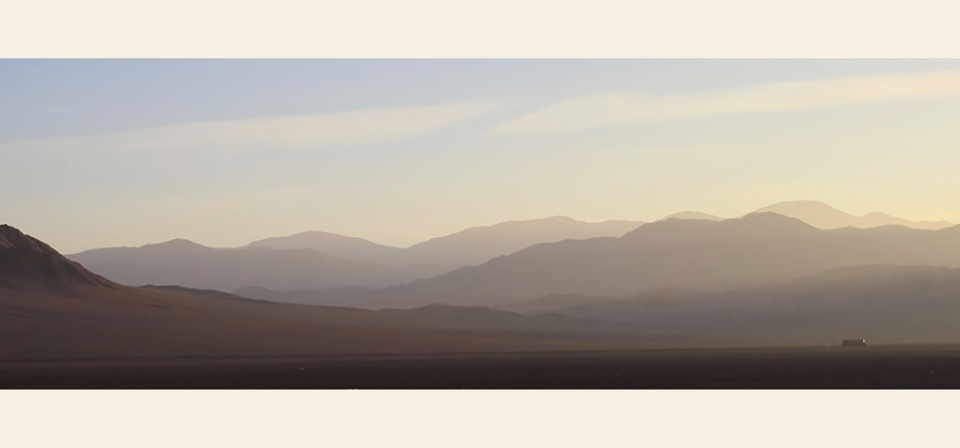
The Desierto de Atacama is the world’s driest plateau. The virtually rainless landscape is fifty times drier than America’s Death Valley and consequently no life whatsoever inhabits most of it. Its unique red-coloured soil draws comparisons to the surface of Mars and, coincidentally, is where NASA has located some of their most powerful telescopes to get the best view of the galaxy; due to the complete lack of humidity and light pollution, the region’s night sky is a blank canvas for the universe to illuminate itself upon.
Beginning my journey on the Carretera Austral (Chile’s best kept secret) I met Matt, an American who was also cycling north to Santiago. After sharing the road together for 2,000km through some of the most spectacular landscapes we’d ever seen (or were likely to ever see), we finally parted ways. As Matt went off to spend his Christmas break with his girlfriend in the capital, I was about to spend mine in the serene solitude of the desert.
It would be my first desert crossing by bicycle and I didn’t know what to expect. I had no concise information as to where I could pick up water along the way but I estimated that I would need to carry enough to get through 100km at a time. I purchased a tube of factor fifty sunscreen, some lip balm and a new safari-esque hat – if one is seeking an adventure then one must acquire an adventurer’s attire.
And so I began pedalling away from civilization towards the vast openness of the Atacama, via the Pan-American Highway – the famous route that provides passage throughout the Americas. Its greatest asset is its navigational simplicity that requires no map at all; simply follow north or south. Another reason why you needn’t bring a map is because you can just follow the trail of urine-filled bottles at the side of the road. The highway is almost delineated with a rich palette of varying grades of dehydrated bladders; tossed out by passing traffic. In such an untouched region of the world, it’s surprising to see. However, what’s even more surprising is the lack of water these drivers drink. How can their discharge be less hydrated than mine when I’m cycling ten hours a day in the desert heat? Maybe I should be stopping them and handing out bottles of water, instead of the opposite.
As I pushed north, the distance between small towns and villages grew longer and longer, my food and water sources became increasingly sparse, and a truer sense of a desert became apparent. The onus was entirely on me to ensure that I was prepared for any situation that may arise. Although, there’s something quite special about being embedded in a landscape that stretches as far as the eye can see. It’s a humbling experience at times to be alone on a vast empty plain to the furthest horizons; just you and your bike. A stark reminder of how small and fragile we really are.
"It would be my first desert crossing by bicycle and I didn’t know what to expect...I estimated that I would need to carry enough water to get through 100km at a time."
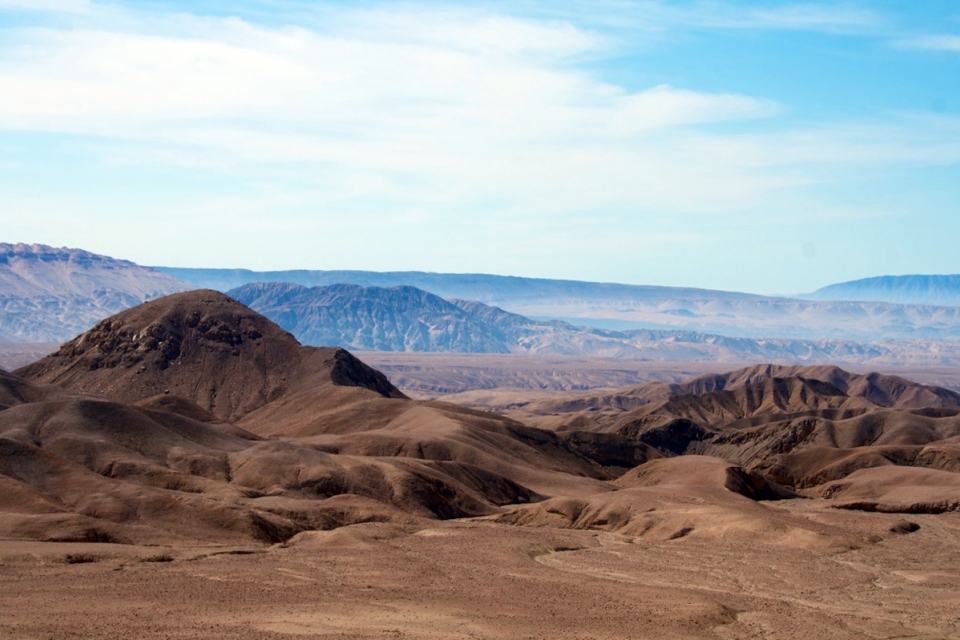
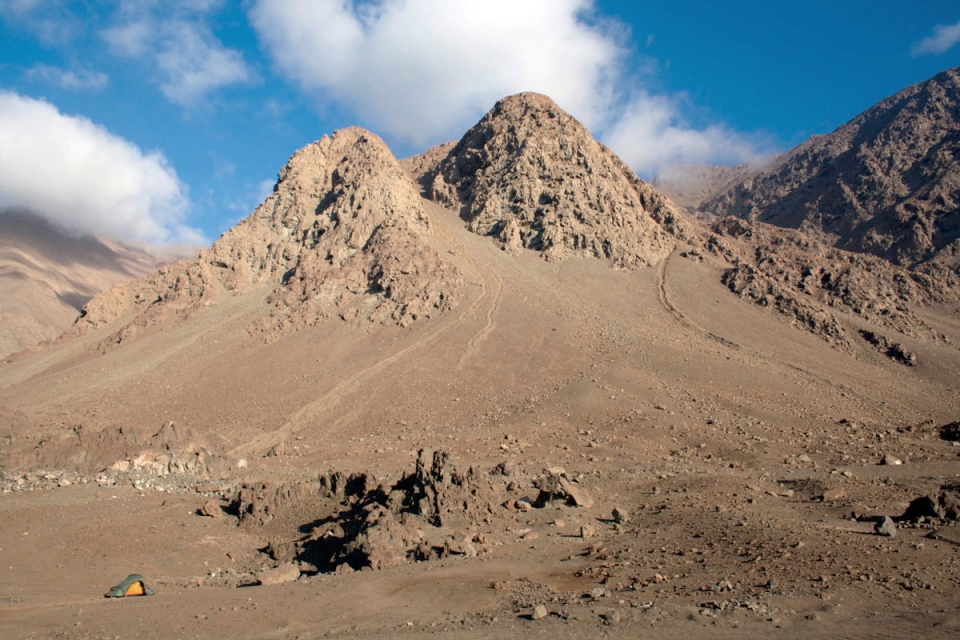
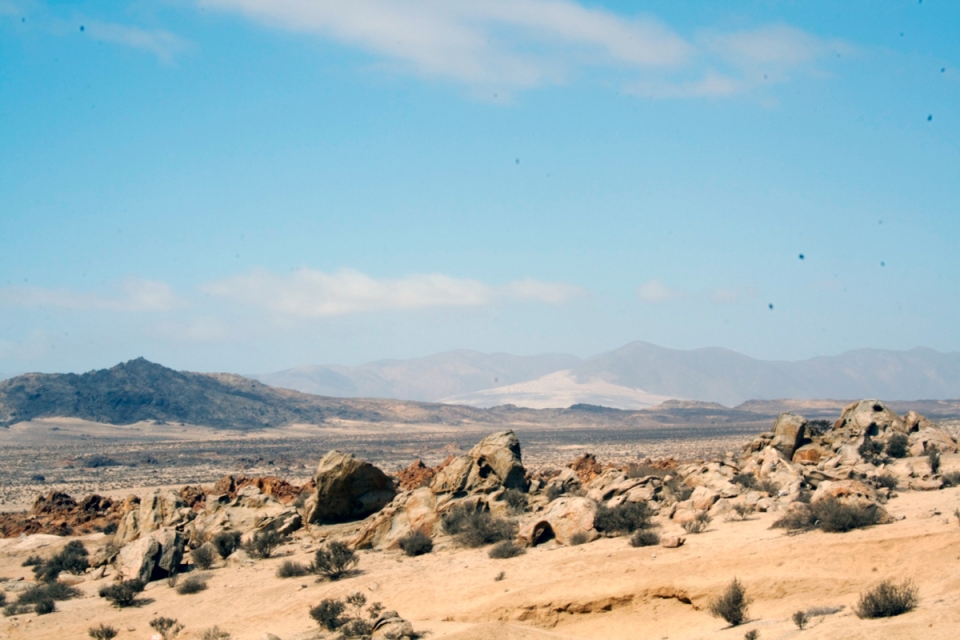
The more time I spent in the Atacama, the more I began to fall in love with the place. I had previously thought that cycling through the desert might be a grueling bore-inducing affair of endless monotonous miles; where the scenery gets old, sharpish. However, the Atacama offered up a variety of beautiful rich landscapes, which were a privilege to ride through.
And, it wasn’t just the landscapes that blew me away – it was the scale. The grandeur of the desert mesmerised me in a way that I hadn’t experienced before in my life. I vividly remember putting my bicycle down at the top of a sandy pass and simply standing, overlooking the endless expanse. As far as the eye could see, there was only the pigment of deep pastel orange that permeated throughout the plateau. Not a single soul around for what felt like many hundreds of miles. I asked myself, ‘what the hell am I doing here?’
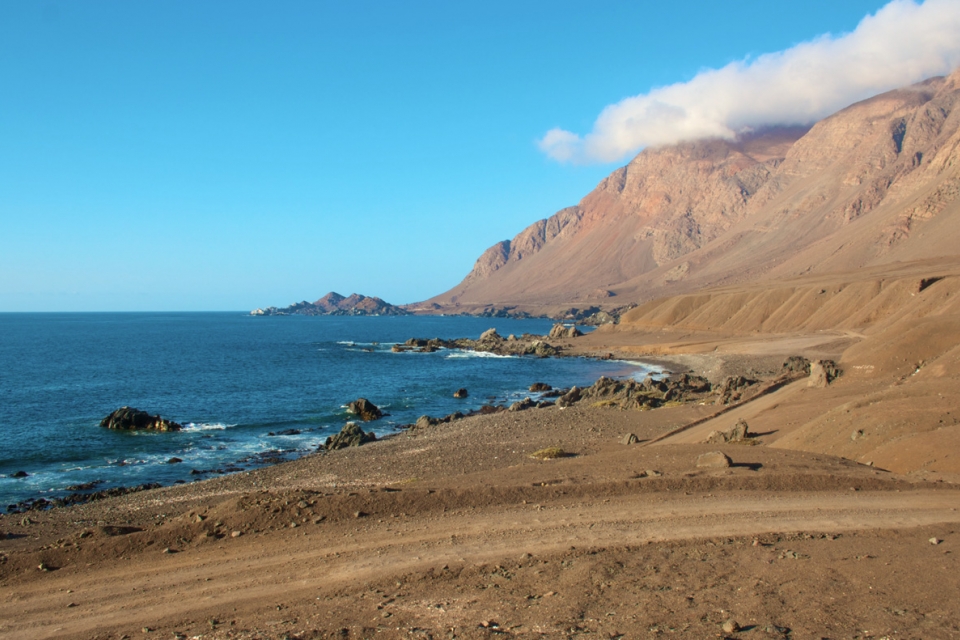
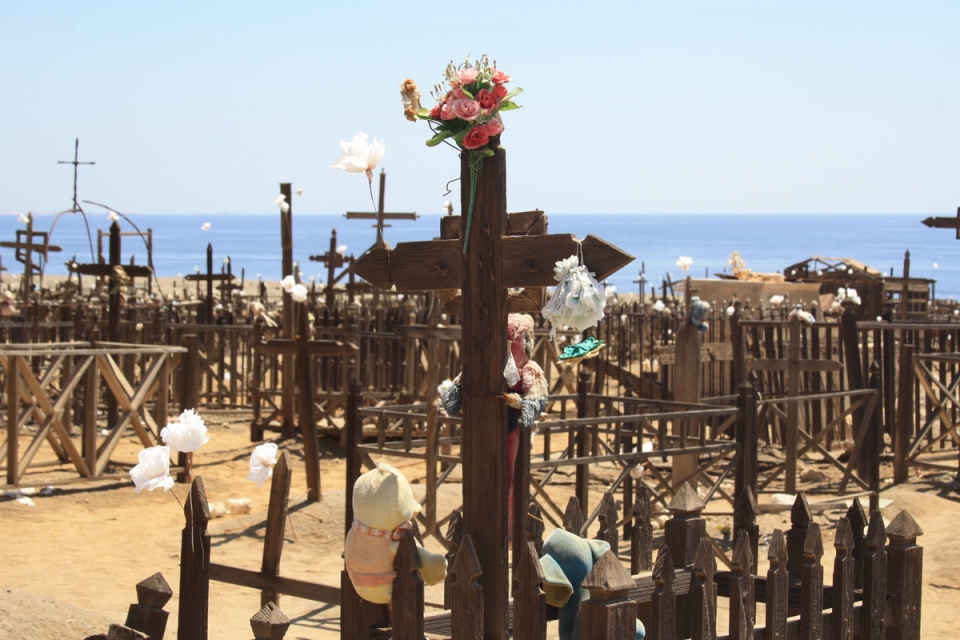
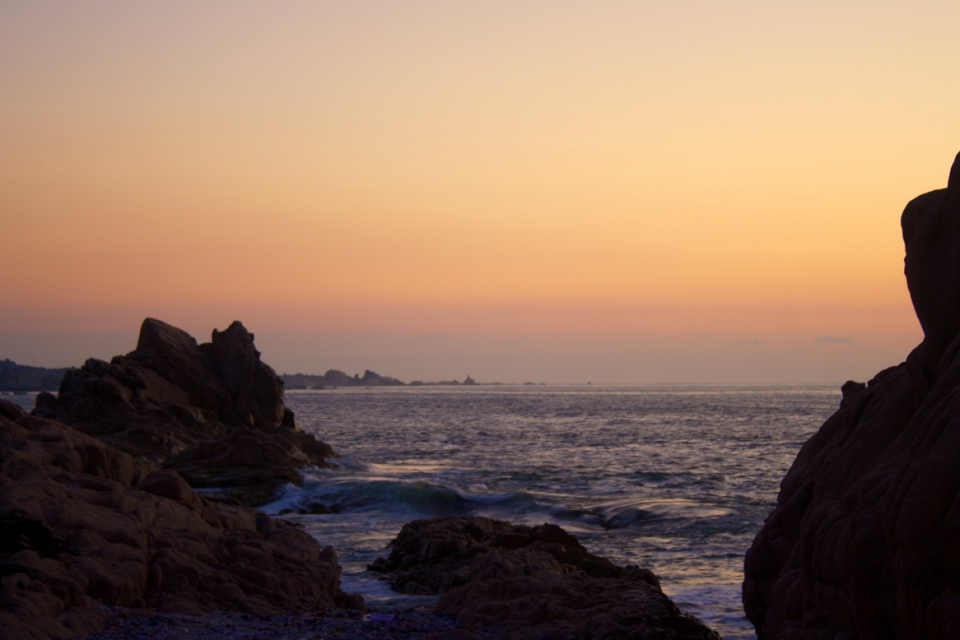
"I had a wall of enormous imposing sandy mountains on my right and a rugged chiselled coastline to my left - ice blue, crystal clear water and untouched bays..."
Instead of strictly following the Pan-Am route throughout the Atacama, I decided to veer off and take a less-trodden path that would link up with the coastline. I wasn’t sure what I’d find, whether or not taking the smaller roads would lessen my chances of coming across small communities to buy supplies from or, whether it would be extremely difficult to traverse the terrain. I spent a large portion of my days wiping sun cream out of my eyes due to the blistering 40 – 45 ? heat but when I could see, I saw. An ocean is not exactly what you’d expect to find when you’re situated in a desert but when the two meet, it’s a stunning combination. As I pedalled northwards up the coast, I had a wall of enormous imposing sandy mountains on my right and a rugged chiselled coastline to my left: ice blue, crystal clear water and untouched bays. I felt so lucky to have it to myself; the gamble had certainly paid off.
Small settlements of maybe fifty or so people inhabited the coastline north and naturally, the route gave way to small cemeteries that aligned themselves with the Pacific Ocean. Crafted out of dark wood, as opposed to conventional marble and stone, these modest resting places held a rare integrity within its peaceful surroundings. Even the most solemn of places possessed a sense of beauty.
My first crossing of a desert would also coincide with my first Christmas away from home. It was a strange feeling being
alone so far away from friends and family at that time of the year. It’s a rather peculiar thing to be looking out onto a sandy vista instead of snow, the gruelling heat instead of a winter breeze, the absence of familiar festivities and traditions; I was pedalling through a contradiction to everything I’d known Christmas to be. At least my timing on the eve of Christmas was impeccable (and a total fluke) as I came across a small coastal town named Chañaral, located 350km south of Antofagasta. I sought out the cheapest motel and, after a quick shower, I went out to treat myself to a Christmas Eve meal…
On my way back from a visit to the Pan de Azucar National Park, I secured my Christmas day banquet from the local grocery shop in the form of a spaghetti Bolognese. However, disaster struck on Christmas Day when I learnt that the motel’s kitchen was not communal. I turned to plan B: my camping stove, however it soon became apparent that the fuel I purchased for my stove wasn’t compatible. Instead of a nice safe blue flame, plumes of fire bellowed out from my stove, creating thick black smog. Spaghetti was off the menu. Not only could I not cook anything, I couldn’t buy anything else either as all the shops were closed for the holidays. If the period didn’t feel polarised enough, I then spent my evening sat in a stale motel room consuming a cheap carton of 2011 Carmenère (Chilean red wine) alongside ice-cream flavoured wafers; an alternative approach to Christmas…
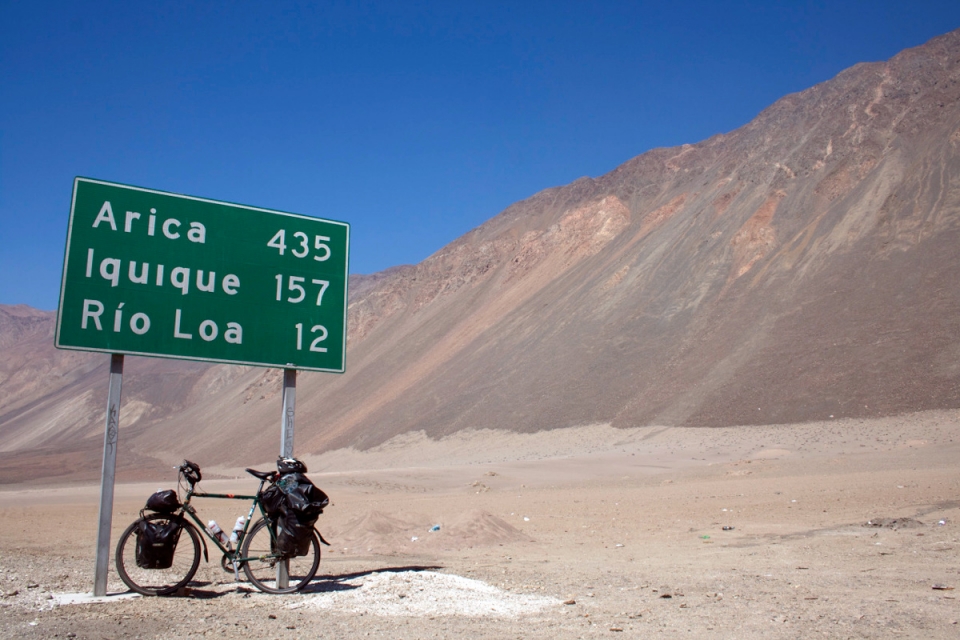
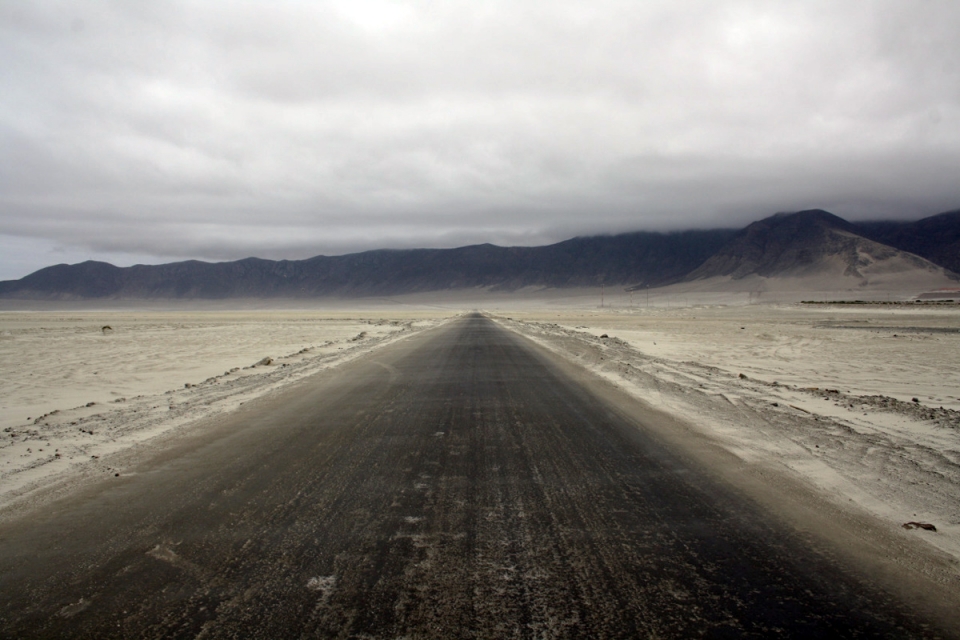
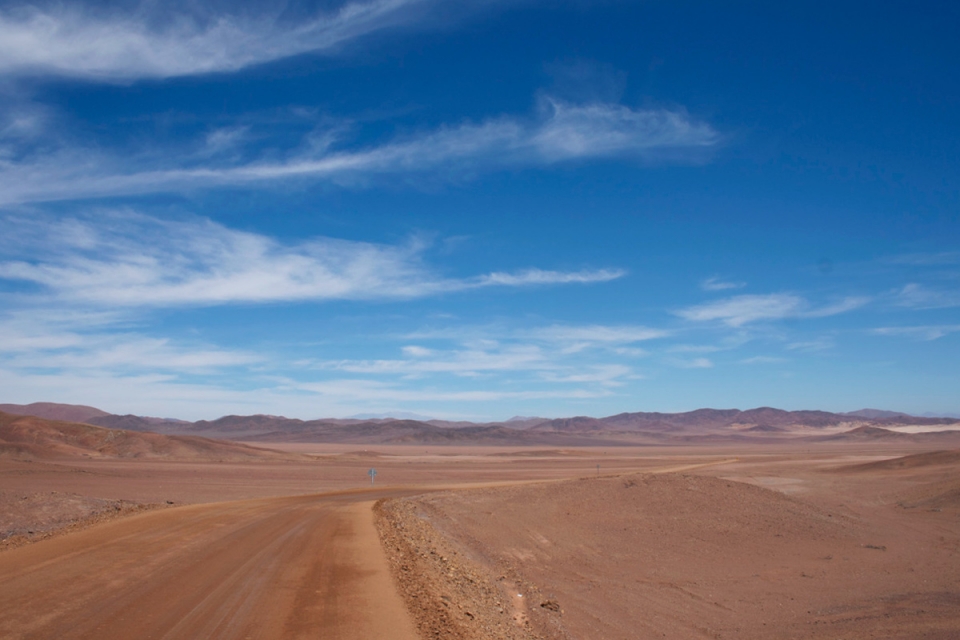
Edging ever closer to Peru, the land became noticeably parched; the road paving was beginning to melt before me. Cat’s eyes began to slide around on the oils of the white road markings as the relentless sun scorched with intent. My tyres were also starting to feel the heat and were wearing down with every rotation that brought them into contact with the baking ground. When I forgot to put sun cream on my ears one day, I was dealt a serious reminder of the sun’s power.
Aside from nature’s threats, the other risk that concerned me from time to time was the absence of any help. In a place so barren you feel vulnerable, especially if the threat comes from other people. One morning I was rolling down a typical-looking infinite stretch of road, when two motorbikes overtook me slowly to take a closer look at me and my bike. They soon disappeared with their huge speed advantage and I thought nothing of them again. About half an hour later, I saw two smouldering black blobs in the distance at the side of the road ahead. As I got closer I could make the two riders out, one holding a camera and shouting for me to stop. I’d be be lying if I didn’t admit fearing the worst for a moment. I was at their mercy if anything bad was to happen; I couldn’t out-
-run them and I certainly couldn’t out-gun them. To my relief, it was clear that these guys were simply intrigued by what I was doing and wanted to take a few photos together! When I woke up that morning, I hadn’t anticipated a roadside photoshoot with two Brazilian motorcyclists but I’m glad it happened – and I’m still in contact with them both today. Encounters such as these happened quite frequently throughout the Atacama and they really helped to put my fears to rest; I put my trust in the good faith of the people and just simply continued.
When the end eventually neared and the curtains began to draw, I became quite sad at the prospect of leaving it all behind. I’d become quite attached to this new way of life in the middle of nowhere – even the solitude! But before I could escape her clasp, lady Atacama had arranged an apt leaving present in the form of a couple of 20km canyon climbs. It was a tough ride and it took a few hours to get through it all but the view below was worth every drop of sweat. After being immersed in a world comprised solely of a deep orange and a sapping range of browns for weeks, the explosion of green from down in the valley felt revitalising to my senses.
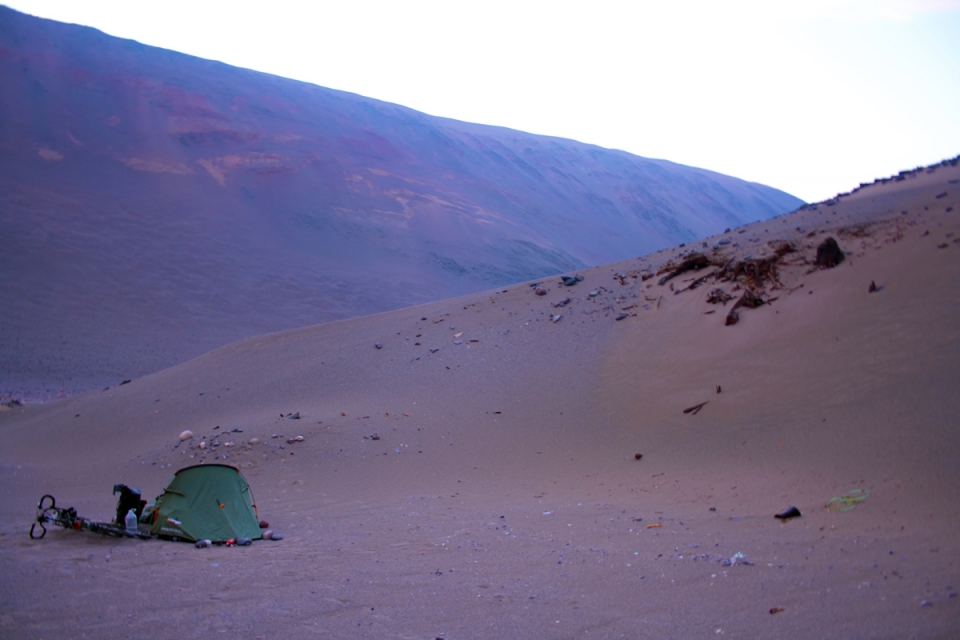
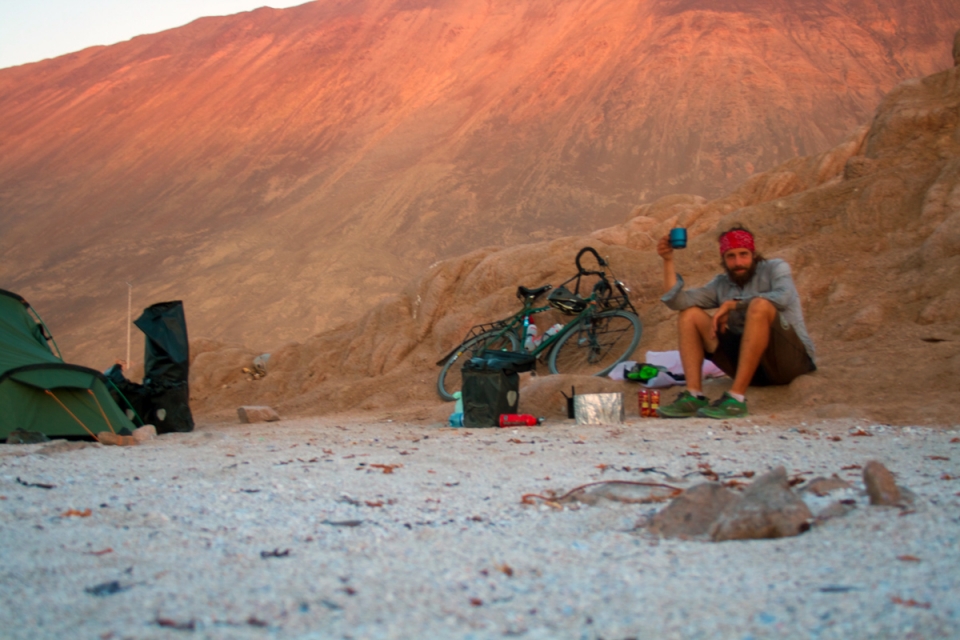
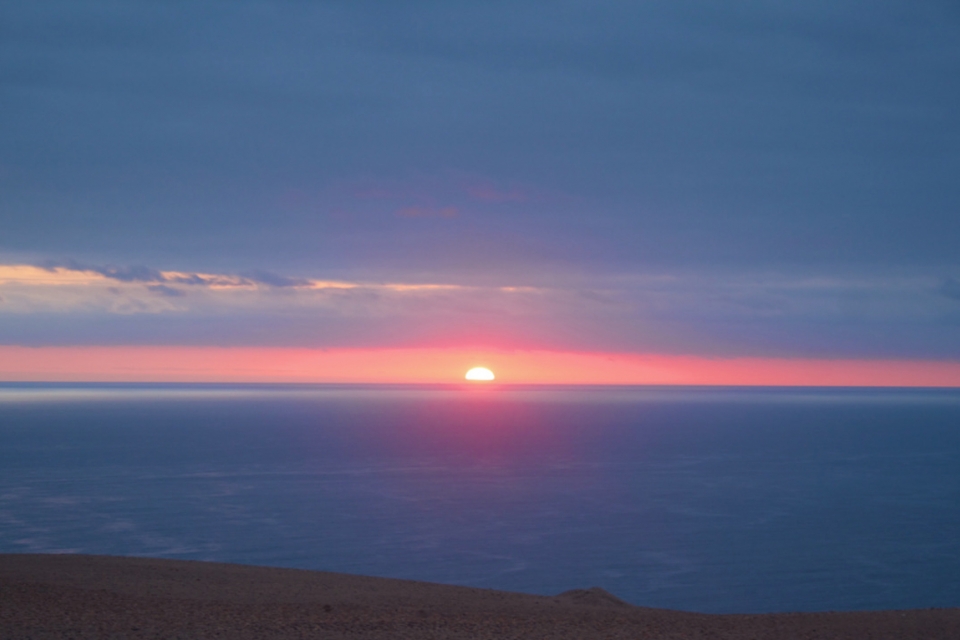
Later that day, I planned to cross the border into Peru but the climbs took a lot of time and energy out of me so I opted to stay one final night in the Atacama – I’d earned it. I wasn’t particularly keen to get to the border either as I’d underestimated the length of time it would take to cycle the desert and, as a result, I was now the lucky owner of an expired passport. A lesson learned for the future.
As I lay on my back with my head resting outside of the tent door, I looked up at the sky and thought about everything that I’d just seen and experienced in this magical place. The final sundown was everything I could have asked for: as the red sky glistened amongst a purple haze, I zipped up my tent for the last time in the desert with a large smile on my face…